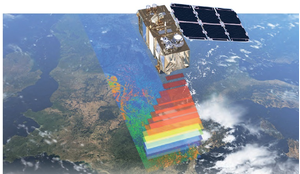The lost years of the Japanese economic slump exerted a heavy pressure on industry to become more competitive and profitable. Most Japanese space companies are branches of larger corporate entities and, for many years, commercial performance of the space branches were not overly scrutinised because revenue from the other branches subsidised space activities. However, the effects of the Japanese economic downturn of the 1990s and onwards were felt in every branch of these large corporate entities and they came under pressure to restructure. Toshiba, one of the larger satellite manufacturers, sold its space branch to NEC Corporation, and other smaller companies followed suit. In this way, the private sector supported the political initiative of establishing the ‘Basic Space Law’ of 2008, paving the way for a more coordinated industrial policy for space.
Japan has been shy of announcing its industrial space policy for many years. As a late starter, the initial objective for Japanese industry was to use public funding to develop technological capabilities to meet international standards. However, the 1990 agreement between the United States (US) and Japan for the procurement of commercial satellites, which prohibits Japanese industry to exclude competition with foreign competitors in the public procurement process, was regarded as an obstacle for winning contracts from the government. Since then, Japanese industry has focused on research and development (R&D) satellite programmes instead, as these were not the focus of the US-Japan agreement.
The Basic Space Law was a revolutionary attempt to change the focus of Japanese space policy from an R&D orientation to an application orientation. While respecting the agreement with the US, the Basic Space Law focuses on application programmes that serve governmental policies. It has transferred the responsibility of space policy- making from the Ministry of Education, Science and Technology (MEXT), whose policy focus is on R&D, to the Cabinet Office which is responsible for coordinating policy issues across the government. This shift has de-emphasised R&D and brought the more space-based service user ministries, including the Ministry of Defence, into space policy-making.
Read more on the new Japanese space policy in the full version of the article, available now to our subscribers.














